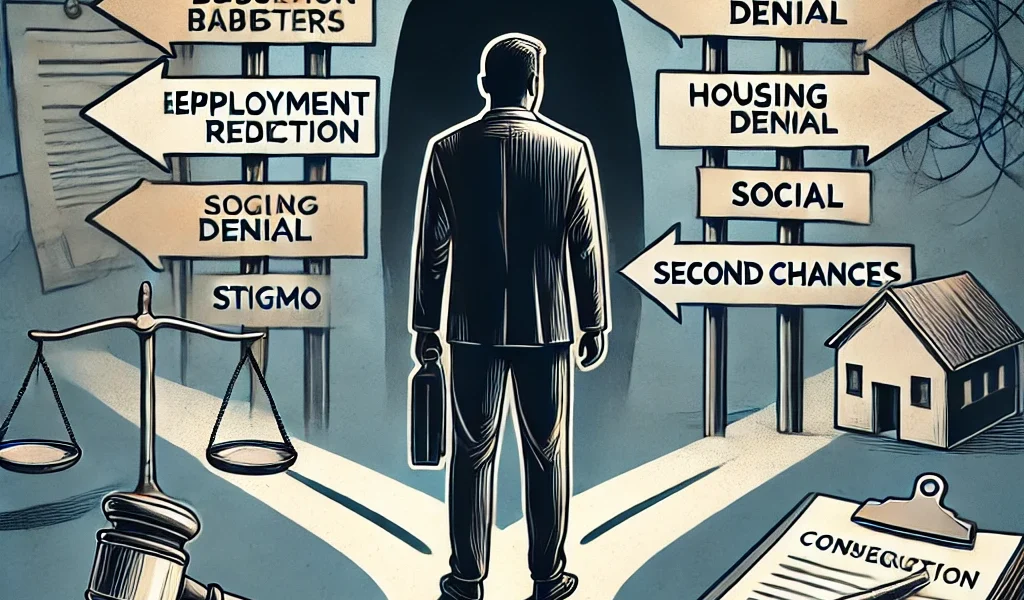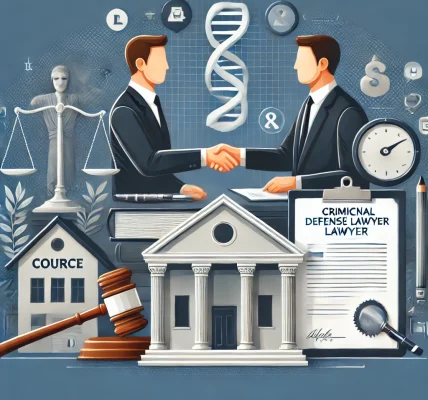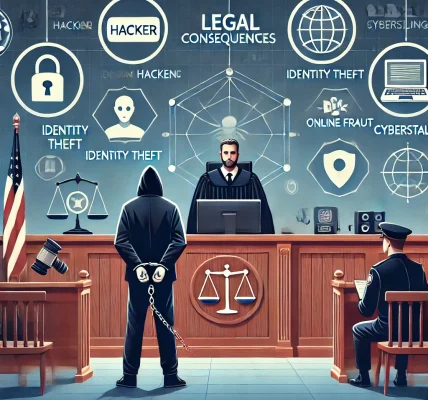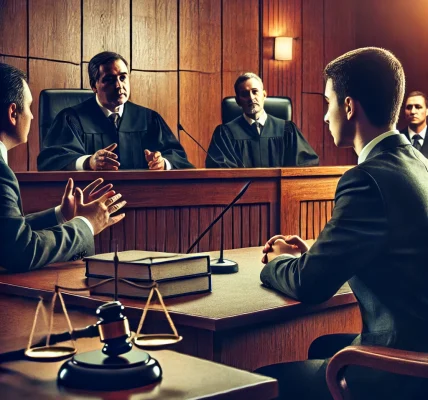Introduction
A criminal conviction can have long-lasting consequences that go beyond serving time or paying fines. It can impact various aspects of your life, including employment, education, housing, and personal relationships. Understanding these consequences can help individuals make informed decisions and take the necessary steps to mitigate the impact of a criminal record.
In this blog, we’ll explore the immediate and long-term effects of a criminal conviction, how it can affect different areas of life, and what options may be available for record expungement or rehabilitation.
1. Immediate Consequences of a Criminal Conviction
Once convicted of a crime, individuals may face immediate penalties, including:
- Jail or Prison Sentence: Depending on the severity of the offense, a person may serve time in jail or prison.
- Fines and Court Costs: Courts often impose financial penalties, which can be substantial.
- Probation or Parole: Some offenders are placed on supervised release instead of, or after, serving time.
- Community Service: Some courts require offenders to perform community service as part of their sentence.
These immediate consequences vary depending on the crime, state laws, and circumstances surrounding the case.
2. Long-Term Consequences of a Criminal Conviction
Even after serving a sentence, a criminal conviction can have lasting effects, impacting various aspects of life.
A. Employment Challenges
A criminal record can make it difficult to secure employment. Many employers conduct background checks, and some industries have strict policies against hiring individuals with certain convictions. Potential issues include:
- Disqualification from specific job fields (e.g., law enforcement, healthcare, childcare)
- Loss of professional licenses or certifications
- Challenges in securing government jobs
- Limited career advancement opportunities
B. Housing Difficulties
Landlords and property managers often perform background checks on prospective tenants. A criminal record can lead to:
- Denial of rental applications
- Higher security deposits
- Limited access to public housing
C. Educational Setbacks
A criminal conviction may limit access to higher education opportunities. Some consequences include:
- Ineligibility for federal student loans and grants
- Denial of college admission
- Expulsion from academic institutions
- Restricted access to professional programs
D. Loss of Civil Rights
Certain convictions result in the loss of specific civil rights, such as:
- Voting rights (varies by state)
- Gun ownership rights
- Jury duty eligibility
- Parental rights in custody cases
E. Immigration Consequences
For non-citizens, a criminal conviction can lead to:
- Deportation or removal proceedings
- Denial of U.S. citizenship
- Ineligibility for visas or green cards
F. Damage to Personal Reputation and Relationships
A criminal conviction can affect personal relationships, including:
- Strained family relationships
- Loss of child custody in divorce cases
- Social stigma and discrimination
3. Financial Consequences of a Criminal Conviction
A criminal record can create financial burdens due to:
- Legal fees and court costs
- Loss of income from job termination
- Difficulty securing new employment
- Increased insurance premiums (e.g., auto insurance rates may rise)
4. How to Mitigate the Consequences of a Criminal Conviction
While a criminal record can be a major obstacle, there are options to help reduce its impact.
A. Expungement or Record Sealing
Expungement or record sealing can remove or limit public access to a criminal record. Eligibility depends on:
- The type of offense
- State laws
- Time since the conviction
- Completion of sentence requirements
B. Legal Assistance and Appeals
Consulting a criminal defense attorney can help explore:
- Appealing a conviction
- Requesting a reduced sentence
- Filing for clemency or a pardon
C. Rehabilitation Programs and Character References
Showing rehabilitation efforts can help mitigate the negative impact of a criminal record. Steps include:
- Completing rehabilitation programs
- Obtaining character reference letters
- Participating in community service
- Building a strong work history
D. Know Your Rights
Some states have laws protecting individuals with criminal records from discrimination in employment and housing. Knowing these rights can help when seeking jobs or housing.
Conclusion
A criminal conviction can have far-reaching consequences, affecting employment, education, housing, and personal relationships. However, there are steps individuals can take to mitigate these effects, such as seeking expungement, rehabilitation, or legal assistance.




